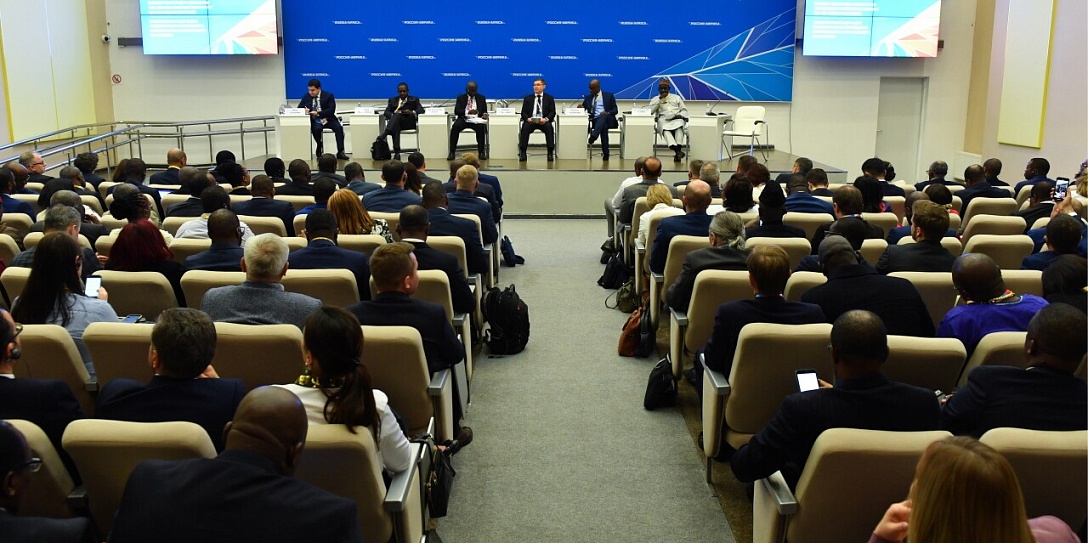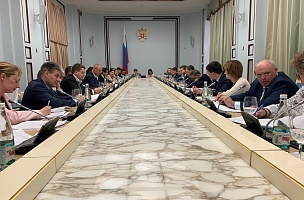KEY CONCLUSIONS
African
countries are short of housing
«There is a sizeable deficit, we are about 2 million
buildings short. We have masses of people moving from the rural areas into
urban ones, so renovation is an enormous challenge for Ghana. <...> We need
to provide decent living conditions for the people coming from the rural
areas,» — Hon. Samuel Atta Akyea, Minister of Works and Housing of the Republic
of Ghana.
«91 thousand
people need housing. We are short about 300 thousand houses that still need to
be built,» — Peya Mushelenga, Minister of Urban and Rural Development of the
Republic of Namibia.
Russian
companies are interested in developing the African real estate market
«I know that
the majority of my colleagues here lack experienced construction companies that
are ready to build quality real estate. From my end, I would like to state that
the Russian companies are interested in Africa. We need to work on the governmental
level to create the necessary environment so that the Russian companies could
share their competences and enter the markets on simple and transparent terms,»
— Vladimir Yakushev, Minister of Construction, Housing and Utilities of the
Russian Federation.
«Russian partners and investors should be more
courageous investing in our countries because there is a market and there is a
future. We are talking about a billion and two hundred million people on the
continent,» — H.E. Ousmane Mey Alamine, Minister of Economy, Planning and
Regional Development of the Republic of Cameroon.
PROBLEMS
Underdeveloped legislature
«One of the major present problems in Africa today is
the question of land cession. <...> We are talking about tens and hundreds
of thousands of acres. In order to invest in construction, these legal issues
must be resolved. We are at a stage of trying to figure it out on a national
level. We are working out cession procedures and legal framework,» — Ibrahima
Kourouma, Minister of Urban Affairs and Spatial Planning of the Republic of
Guinea.
«Our biggest obstacle in the housing situation is the
lengthy registration process in order to build something on the land and
extremely low income of the people that need the housing,» — Peya Mushelenga, Minister
of Urban and Rural Development of the Republic of Namibia.
Immature financial system and high mortgage rates
«Current
mortgage rates in Ghana are close to commercial rates. We are talking 35%,
sometimes you can get 25% to 30%. We are trying to bring it down to 10% and we
are trying to facilitate the mortgage payoff throughout an extended period of
time,» — Hon. Samuel Atta Akyea, Minister of Works and Housing of the Republic
of Ghana.
«Creating new
financial instruments, including banking ones, is happening in Cameroon right
now. However, we can only count on short-term resources. It illustrates
imperfections of the system that hinders our economic development,» — H.E.
Ousmane Mey Alamine, Minister of Economy, Planning and Regional Development of
the Republic of Cameroon.
SOLUTIONS
Protecting
investor rights
«Governmental structures from both the Russian
Federation and our partners present here today, need to figure out investment
protection mechanisms. We need to work out a framework that will protect our
investors that will work outside the boundaries of the Russian Federation and
come into the markets of our partners. The investor needs to return the
investment and make something on top,» — Vladimir Yakushev, Minister of
Construction, Housing and Utilities of the Russian Federation.
«There is a financing problem. There are 50
construction companies that are interested in building in Ghana, and all of
them want guarantees. <...> We are currently looking for ways to provide
those guarantees, we want to help. We have an agreement, a certain list of
conditions, a payment plan. There also is another model. <...> It is a
model where we give the construction company the funds, and they find the
people who will buy those houses, and they will pay over a period of time.
<...> We are starting with USD 5 billion: 10 thousand houses over a 5-year
period,» — Hon. Samuel Atta Akyea, Minister of Works and Housing of the
Republic of Ghana.
«One of the areas we managed to be successful is
guarantees. It allowed us to create funds that guarantee the buildings will be
finished on time and the construction process will be profitable to the
investors. It allows us to create the guarantees investors need,» — Ibrahima
Kourouma, Minister of Urban Affairs and Spatial Planning of the Republic of
Guinea.
Fulfilling
an all-encompassing state policy in housing
«We have a
national housing policy designed in 2009. It aims to provide everyone with
access to cheap housing. The government adopted the mass housing programme. It
has a few elements to it. First is land registration. Then mortgage, sanitary
infrastructure in rural areas, and updates of the unregistered settlements. In
order to get this done, among other things we have designed financing models by
local and international organizations, as well as private-public partnerships,»
— Peya Mushelenga, Minister of Urban and Rural Development of the Republic of
Namibia.
Lowering
mortgage rates and supporting low income population
«In our country, an average mortgage rate without any
state assistance is around 9.2%. On the new construction market, we saw a great
precedent of lowering the interest rate by just 1 percentage point: it led to
the demand spiking by nearly a quarter. It is a lot, especially when the rates
go from double to single digits. It stimulates the demand, thus improving the
quality of the housing,» — Nikita Stasishin, Deputy Minister of Construction,
Housing and Utilities of the Russian Federation
«We support
them [low income citizens — Ed.] by
producing the funds from the low-income cooperative. They put their own money there.
USD 10 million goes towards this every year,» — Peya Mushelenga, Minister of
Urban and Rural Development of the Republic of Namibia.
«We signed a
convention between the Central Bank of Guinea, the professional banking
association, the government, and the developers. It is done so that the
population and especially the state employees who do not make all that much
will have access to reduced mortgage rates,» — Ibrahima Kourouma, Minister of
Urban Affairs and Spatial Planning of the Republic of Guinea.
For more
information, visit the Roscongress Information and Analytical System at roscongress.org






